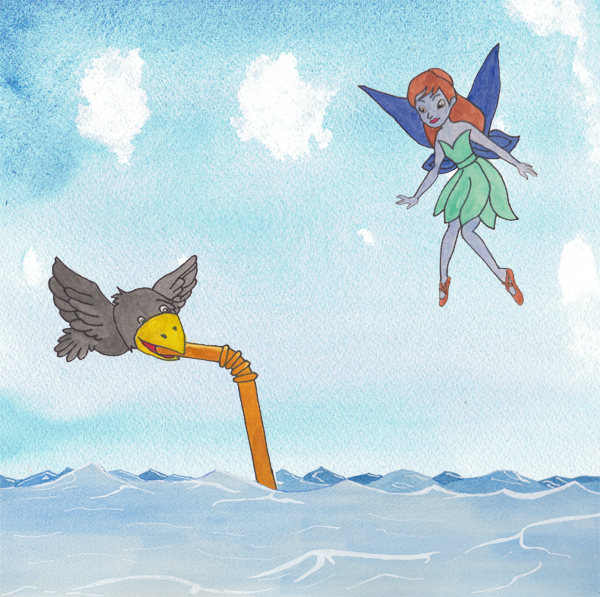
Jataka 296
Samudda Jātaka
Even the Ocean is Not Enough
as told by Eric Van Horn
originally translated by William Henry Denham Rouse, Cambridge University
originally edited by Professor Edward Byles Cowell, Cambridge University
In Buddhism there is a realm in the cosmology for beings who are never satisfied no matter how much they have. It is a realm of great suffering. But this is also an archetype for beings in the human realm. You see this in billionaires who always want more money. But you don’t have to be a billionaire. In fact, you may know someone like this. I certainly do!
“Over the salt sea wave.” The Master told this story while at Jetavana. It is about the Elder Upananda. This man was a great eater and drinker. There was no satisfying him even with cartloads of provisions. During the rainy season he would pass his time at two or three different settlements, leaving his shoes in one, his walking stick in another, and his water jar in a third, and one he lived in himself.
When he visited a country monastery and saw the brothers with their requisites (three yellow, orange or ochre robes—the lower loincloth, the upper inner robe and the large top robe—an alms bowl, a razor to shave the head, a needle for mending clothes, a water strainer, and a cloth girdle) all ready, he began to talk about the four classes of contented ascetics. (The recluse who is contented with the robes presented to him, with the food, with the bedding, and he who delights in meditation.). Then he took their garments and made them pick up rags from the dust-heap. He made them take earthen bowls and give him any bowls that he liked. He took any bowls that were made of metal. Then he filled a cart with these possessions and carried them off to Jetavana.
One day people began to talk in the Dharma Hall. “Friend, Upananda of the Sakka clan, a great eater, a greedy fellow, has been preaching religion to other people, and here he comes with a cartful of monks’ property!” The Master came in and wanted to know what they were discussing as they sat there. They told him. “Monks,” he said, “Upananda has gone wrong before by talking about this contentment. But a man ought first of all to become modest in his desires before praising the good behavior of other people.
“Yourself first establish in propriety,
Then teach; the wise should not self-seeking be.”
Pointing out this verse from the Dhammapada (this line is from Dhammapada 158) and blaming Upananda, he went on, “This is not the first time, monks, that Upananda has been greedy. Long ago, he thought even the water in the ocean ought to be saved.” And he told them this story from the past.
Once upon a time, when Brahmadatta was The King of Benares, the Bodhisatta became a sea spirit. Now it so happened that a water crow was passing over the sea. He went flying about, trying to scare off the shoals of fish and flocks of birds, crying, “Don’t drink too much of the sea-water! Be careful of it!” (The water crow wanted to keep all the water for himself.) On seeing him, the sea spirit repeated the first stanza:
“Over the salt sea wave who flies?
Who checks the shoals of fish, and tries
The monsters of the deep to stay
Lest all the sea be drunk away.”
The water crow heard this and answered with the second stanza:
“A drinker never satisfied
So people call me the world wide,
To drink the sea I fain would try,
And drain the lord of rivers dry.”
On hearing which the sea spirit repeated the third stanza:
“The ocean ever ebbs away,
And fills again the selfsame day.
Who ever knew the sea to fail?
To drink it up can none avail!”
With these words the spirit assumed a terrible shape and frightened the water crow away.

Figure: Even the ocean is not enough.
When the Master had ended this discourse, he identified the birth: “At that time Upananda was the water crow, and I was the sea spirit.”
